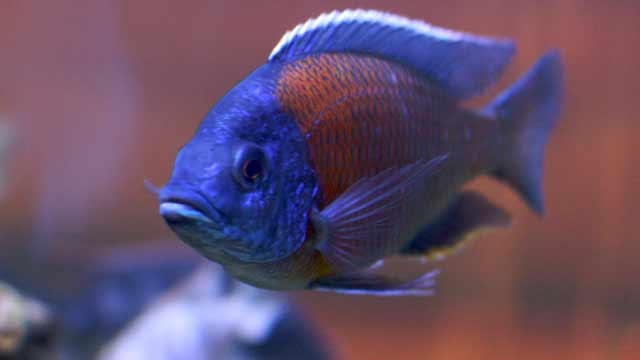Female fish develops male organs; impregnates self
Mon 28 Mar 2016, 11:19:42

In a rare finding, scientists have observed a female hybrid fish growing male reproductive organs, impregnating itself and then giving birth to offspring.
The process is called 'selfing' and researchers said that it is very rare in vertebrates.
Researchers from University of Hull and University of East Anglia in UK bred two different species of chichlid fish, resulting in the birth of several offspring, one of which developed male reproductive organs.
Such fish reproduce by mixing sperm and eggs in the mouth. The hybrid ejected sperm into the water and then sucked it into its mouth where it fertilised the eggs.
It self fertilised itself many times over the course of a year, giving birth to 42 offspring (both male and female), researchers
said.
said.
The offspring all reproduced without any of them resorting to selfing, they said.
However, they all suffered from inbreeding depression, where there is minimal genetic diversity, which can lead to birth defects in subsequent generations, 'Phys.org' reported.
The researchers believe the selfing observed in the cichlid female likely came about due to its parents having different sex-determining genes.
It was almost certainly an oddity, and thus not likely to happen again anytime soon, the researchers said.
They note also that it is not likely that this was the first occurrence of selfing in the species, such instances have likely gone underreported due to its rarity.
The study was published in the journal Royal Society Open Science.
No Comments For This Post, Be first to write a Comment.
Most viewed from International
Most viewed from World
AIMIM News
Latest Urdu News
Most Viewed
May 26, 2020
Do you think Canada-India relations will improve under New PM Mark Carney?
Latest Videos View All
Like Us
Home
About Us
Advertise With Us
All Polls
Epaper Archives
Privacy Policy
Contact Us
Download Etemaad App
© 2025 Etemaad Daily News, All Rights Reserved.






.jpg)
.jpg)


































